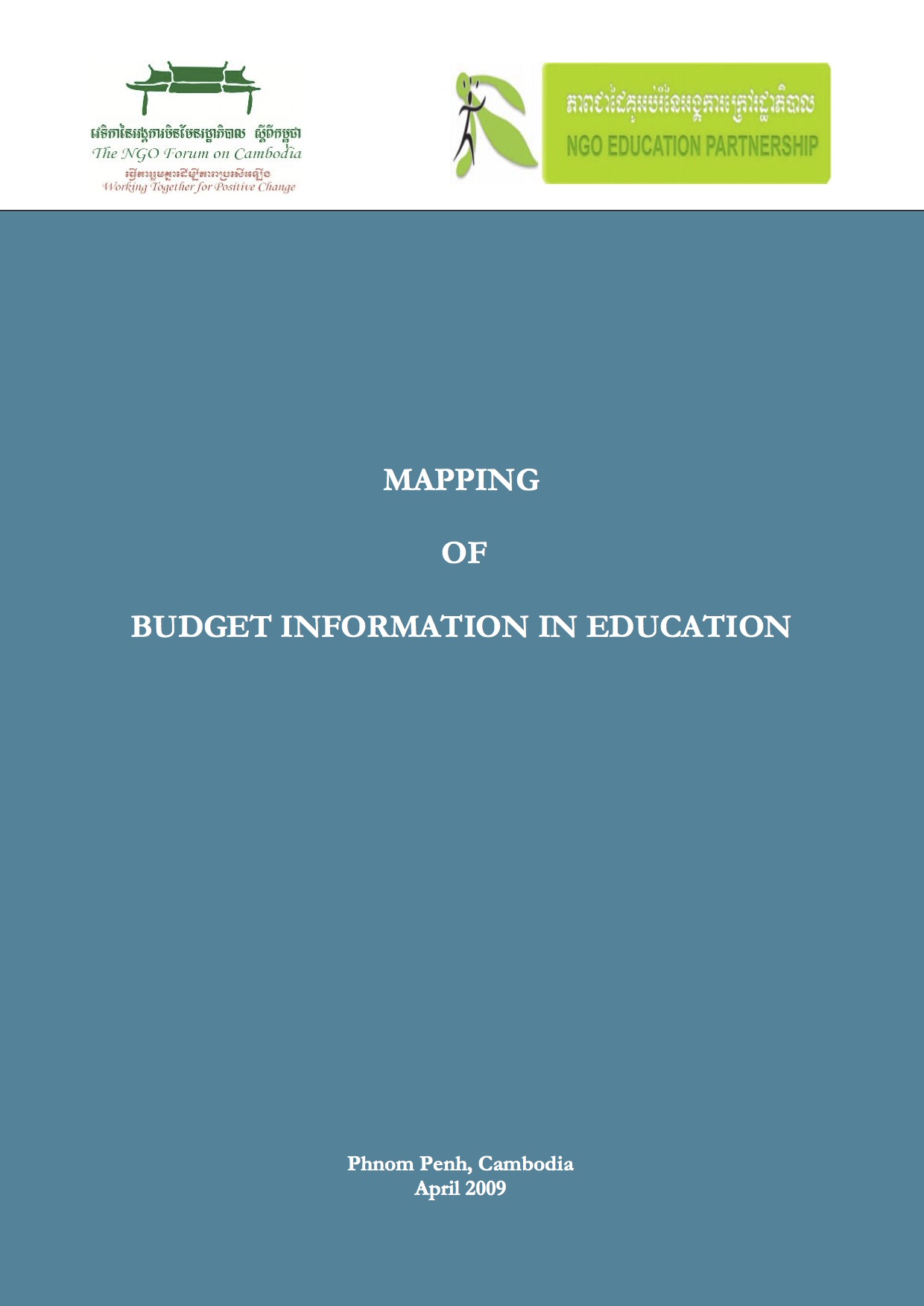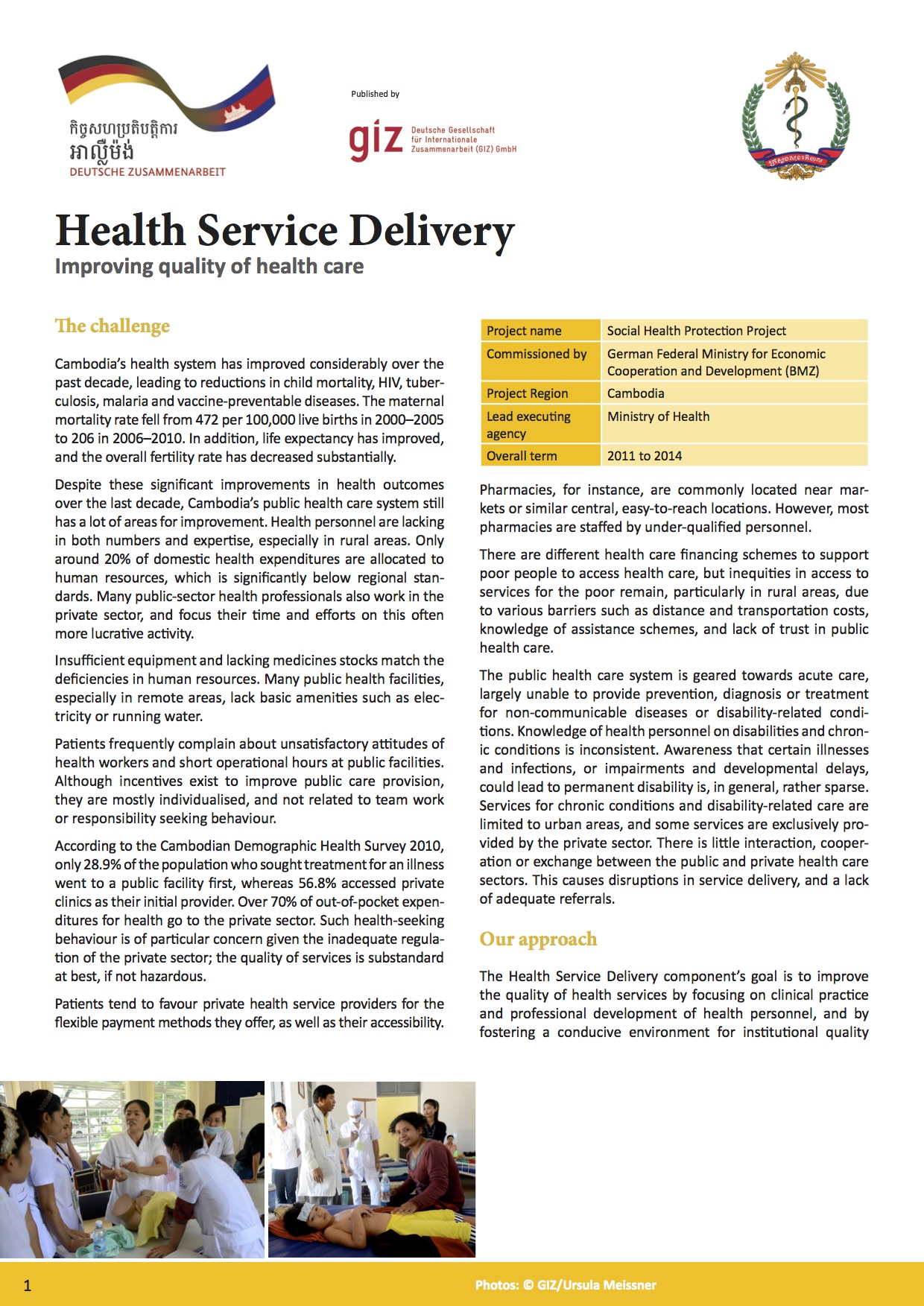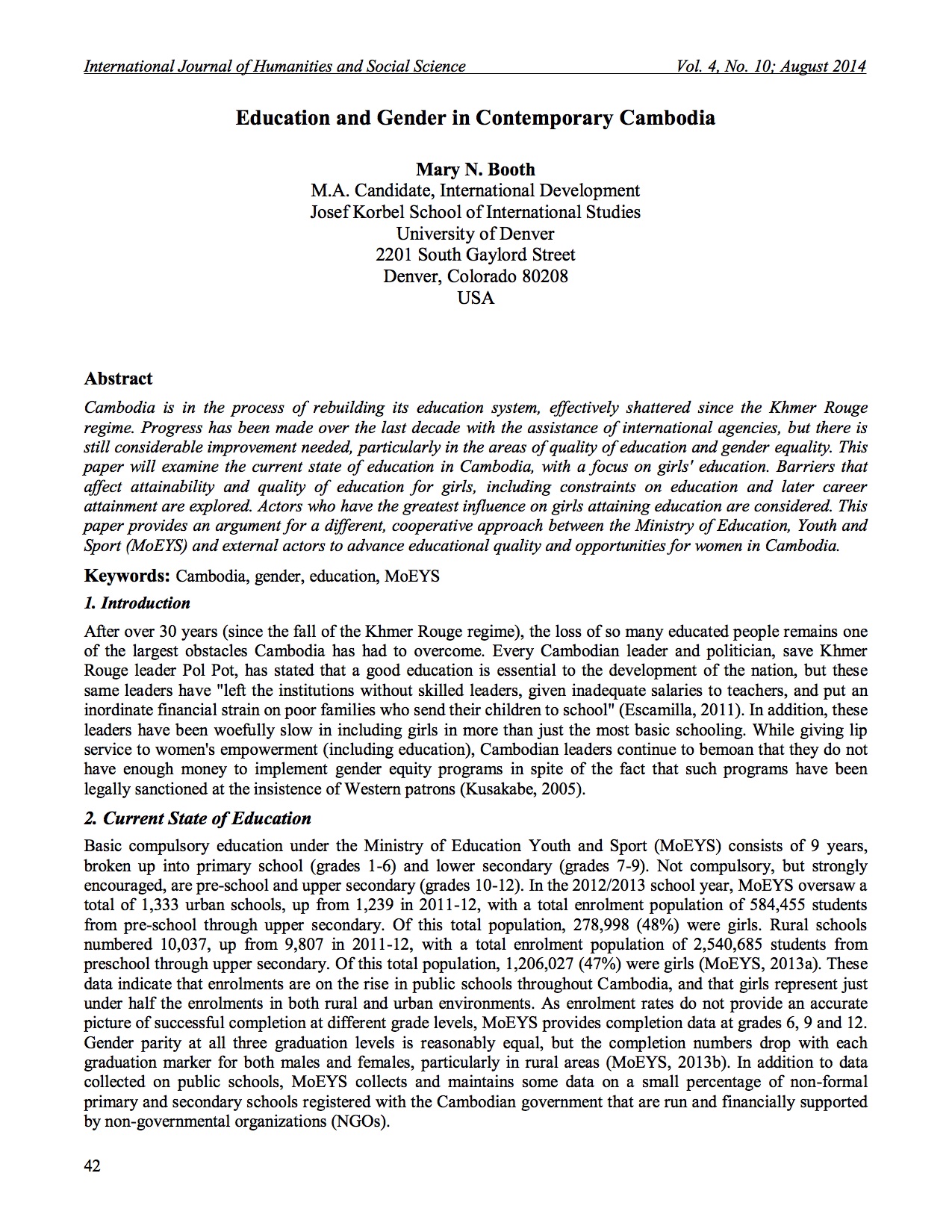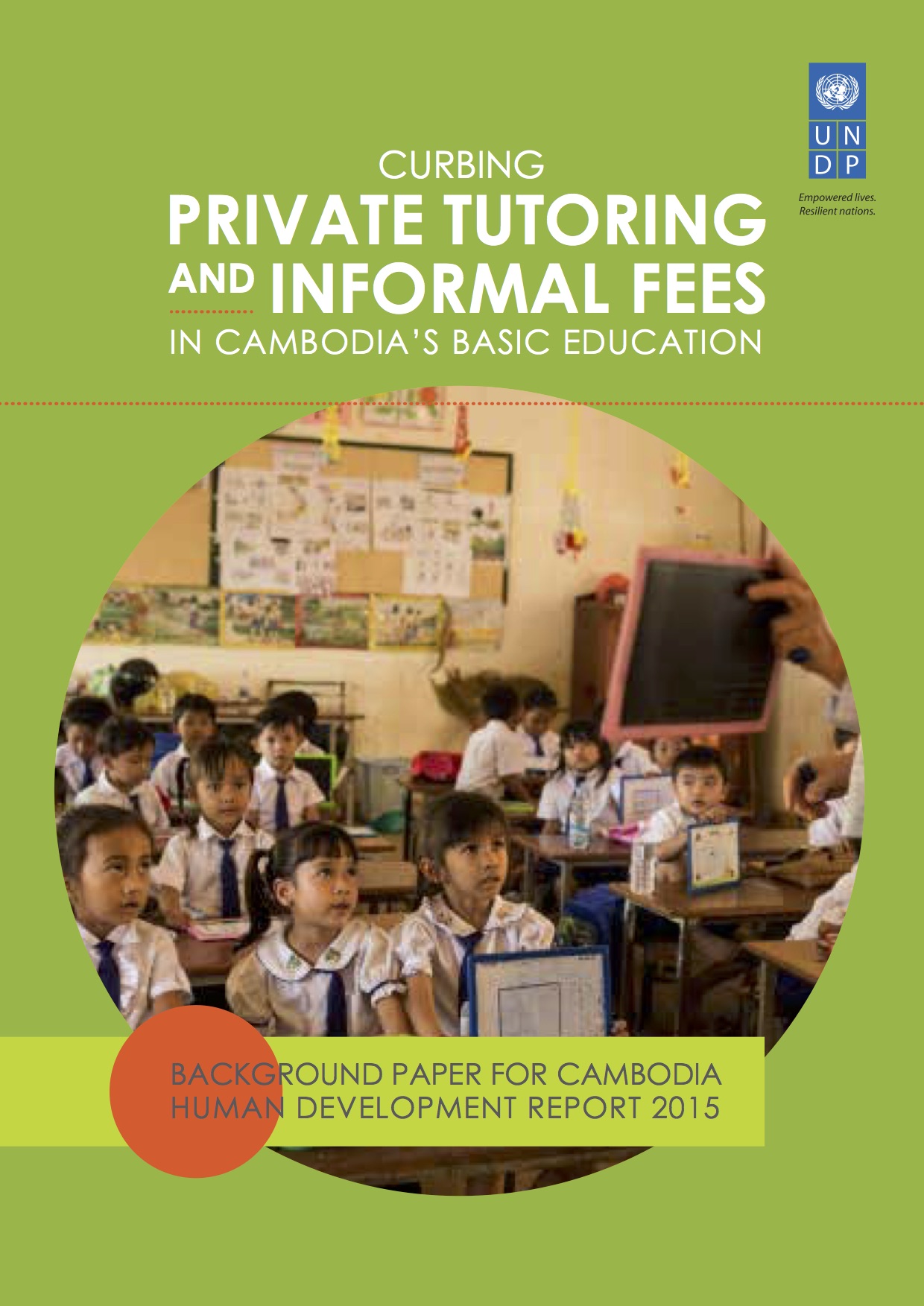Latest Entries
Mapping of Budget Information in Education
Publication Year: 2009 / Sources:This budget information mapping exercise in education sector was conducted in the period from December 2008 to February 2009. It seeks to provide a comprehensive overview of all the publicly available documents related to planning and budgeting in education sector. Its finding are expected to assist NGOs working in the sector to better understand its planning and budgeting process which in turn will enable them to ensure that their programs are complementary to the efforts of the Royal Government of Cambodia (RGC).
Health Service Delivery
Publication Year: 2014 / Sources: Deutsche Gesellschaft für Internationale Zusammenarbeit (GIZ)Cambodia’s health system has improved considerably over the past decade, leading to reductions in child mortality, HIV, tuberculosis, malaria and vaccine-preventable diseases. The maternal mortality rate fell from 472 per 100,000 live births in 2000–2005 to 206 in 2006–2010. In addition, life expectancy has improved, and the overall fertility rate has decreased substantially.
Education and Gender in Contemporary Cambodia
Publication Year: 2014 / Sources: International Journal of Humanities and Social Science, Volume 4Cambodia is in the process of rebuilding its education system, effectively shattered since the Khmer Rouge regime. Progress has been made over the last decade with the assistance of international agencies, but there is still considerable improvement needed, particularly in the areas of quality of education and gender equality. This paper will examine the current state of education in Cambodia, with a focus on girls’ education. Barriers that affect attainability and quality of education for girls, including constraints on education and later career attainment are explored. Actors who have the greatest influence on girls attaining education are considered. This paper provides an argument for a different, cooperative approach between the Ministry of Education, Youth and Sport (MoEYS) and external actors to advance educational quality and opportunities for women in Cambodia.
Educating the Next Generation
Publication Year: 2015 / Sources: World Bank GroupRealizing education’s potential to spur growth is a priority for Cambodia. The country’s National Strategic Development Plan and Rectangular Strategy call for creating a competitive economy through knowledge and innovation. To lay a strong foundation, the Education Strategic Plan (ESP) focuses on two key issues: achieving universal access to high-quality basic education and promoting equal educational opportunities to increase income and employment.
Curbing Private Tutoring and Informal Fees in Cambodia’s Basic Education
Publication Year: 2014 / Sources: UNDP CambodiaThis report reviews the issue of informal fees in Cambodian primary and lower secondary schools, where public education is, in principal, free for all. Informal fees are defined as fees “not officially sanctioned, approved, and/or collected by the state or local government as a prerequisite for school attendance”. This report focuses on two main types: fees for private tutoring and fees for specific educational processes. Fees for private tutoring consist of payments to teachers in exchange for tutoring organized by the school or the class teacher to supplement regular class instruction. Private tutoring as it has emerged in Cambodia may be considered a form of informal fee, given the current legal framework endorsing free education for all. Fees for specific educational purposes cover items such as handouts and examination work sheets, along with better evaluations and even advancement from Grade 9 to Grade 10.




